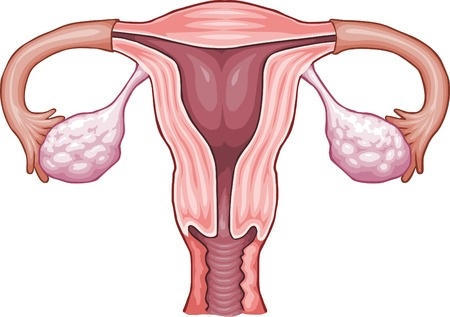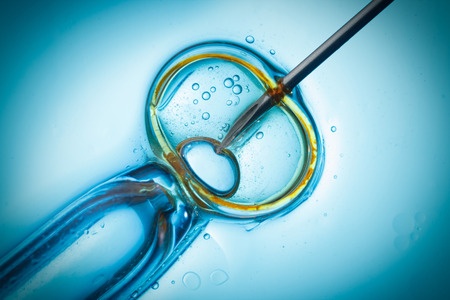Having healthy ovaries is a cornerstone of fertility. More often than not, the factors impacting the health of ovaries can be easily overlooked.
The key to enhancing the health of eggs is none other than maintaining a balanced diet and exercise regime to boost the body’s immune system, says Dr Fong Yang from Fertility Specialist at Virtus Fertility Centre Singapore.
Dr Fong explains, “A woman’s fertility and reproductive health are largely dependent on the state of her ovaries. Women struggling to conceive are likely to have poor egg conditions, and will need to pay closer attention to the various factors that can improve egg health for a viable pregnancy.”

Dr Yang answers commonly asked questions and shares tips on ovarian health.
1. What is ovary-action?
Unsuccessful attempts at conceiving can be a frustrating experience for couples. It is important to evaluate one’s lifestyle habits and incorporate a well-balanced regime to improve the reproductive system.
There are many ways to stimulate the health of ovaries and improve egg quality to optimize fertility. As eggs are developing and maturing every month, maintaining a healthy state of body and mind at all times is important, especially during the months when you are actively trying for a baby.
Attention to a healthy routine during this time can have a positive impact on egg quality.
2. What should I eat?

Fuel ovarian health with a nutrient-rich diet, eight glasses of purified water and exercise to stay active.
Vitamin A is a critical vitamin which helps to kick start the cell division process in the production of eggs. Foods containing vitamin A include eggs, milk, spinach, pumpkin and carrots.
A word of caution: Vitamin A can be toxic in high doses, one must not exceed recommended daily allowances especially when taking it in the form of supplements or pills.
While vitamin D has been touted for its benefit to bone health, a less known fact is that vitamin D plays a critical role in ovarian health by regulating the levels of anti-Mullerian hormone (AMH), a hormone that can assess a woman’s ovarian reserve.
Vitamin D-containing food includes salmon, mushrooms and eggs.
Sources of omega-3 include salmon, mackerel, walnuts and soybeans. Besides being heart-friendly, omega-3 fatty acids play an important role in membrane fluidity and cell health to protect against oxidative damage and promote a healthy ovary.
3. What kind of lifestyle habits compromise ovarian health?
Smoking decreases the flow of blood and oxygen to all parts of the body including the ovaries which could lead to an increased rate of genetic damage to the eggs and heightened risks of miscarriages.
Women planning to conceive are advised to curb any caffeine to no more than two cups of coffee or five cups of tea a day.
Abstaining from alcohol consumption is highly encouraged.
➡️ Related Read: Facts and Myths about Fertility
4. Your menstrual cycle
If you have been experiencing irregular menstrual cycles, increased facial and body hair growth, unexplained weight gain, or even difficulties in getting pregnant for a prolonged period of time, it is time to take action and seek professional help to keep your body in check.
One of the most common ovarian disorder that affects about 5-15% of women of reproductive stage 5 in Singapore is Polycystic Ovarian Syndrome (PCOS), which affects a woman’s fertility because her ovaries contain small cysts or follicles which are not able to produce eggs capable of being fertilised.
➡️ Related Read: Infertility causes and what to do
5. Can I still get pregnant if I am diagnosed with PCOS?
While there is no cure for PCOS, the most common treatment is an Ovulation Induction process where the woman will be prescribed an oral medicine or a series of injections of Follicle Stimulating Hormone (FSH) that aims to spur the growth and development of eggs to increase her chances of conception naturally or through artificial insemination.
After the medication is administered, the woman will be required to return for an ultrasound scan between the 11th to the 14th day to check if she is about to ovulate and get advice on appropriate days for sexual intercourse or artificial insemination to maximise the chances of pregnancy.
6. Is time on my side?
By the time a woman reaches puberty, her ovarian reserve has already depleted to about less than half of what she had at birth.
A way to find out the potential number of fertile years a woman has left is to take the Ovarian Reserve Test, or the Anti-Mullerian Hormone (AMH) test. AMH is a hormone secreted by cells in developing follicles, which can be detected in a woman’s blood at any time throughout her menstrual cycle. The level of AMH serves as a good indicator of a woman’s remaining quantity of eggs.
This article was contributed by Virtus Fertility Centre, one of the largest dedicated fertility centres in the region which provides a world-class standard of fertility care. It forms part of the Virtus Health network, the largest network and provider of fertility services in Australia with an international presence in Ireland and Singapore.
* * * * *
Like what you see here? Get parenting tips and stories straight to your inbox! Join our mailing list here.
Want to be heard 👂 and seen 👀 by over 100,000 parents in Singapore? We can help! Leave your contact here and we’ll be in touch.



























































